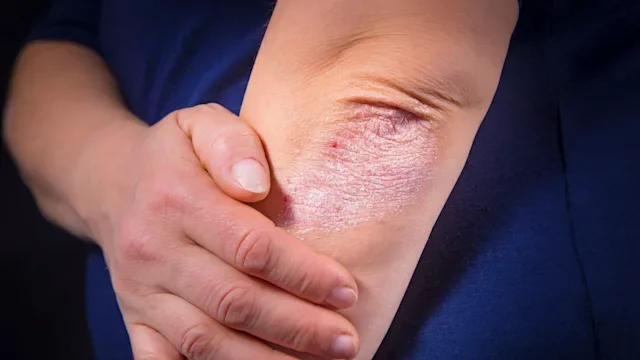Key takeaways:
The immune system protects your body against things that don’t belong, like cancers. If the immune system’s response to a cancer is too strong, autoimmune conditions can occur.
Some autoimmune conditions and their treatments can increase your risk of cancer.
Some cancers and cancer treatments can increase the risk of autoimmune issues.
Save on related medications
Having an autoimmune disease or cancer can be stressful and overwhelming, to say the least. But did you know there’s a link between the two?
It’s true: Certain autoimmune diseases and their treatments increase the risk of getting cancer. And some cancers and cancer treatments increase the risk of autoimmune conditions. It goes both ways.
In this article, we explain the interesting relationship between autoimmune conditions and cancer.
How does the immune system respond to cancer?
First, it might help to understand how the immune system works. Simply put: The immune system is your body’s army. It protects you against things that don’t belong, like germs and cancers. When the immune system finds a cancer, it sounds the alarm and activates the troops to fight it.
At this point, there are three possible outcomes:
The immune system wins and kills the cancer. You never even know the cancer was there.
The immune system tries its best, but the cancer grows too fast. The cancer develops.
The immune system activates a lot of troops, but things go awry. While trying to fight the cancer, the immune system gets confused and starts attacking your body, too. This is what we call autoimmune disease (“auto,” meaning “self”).
Do autoimmune diseases increase the risk of cancer?
Autoimmune conditions can increase the risk of cancer in many different ways. We don’t completely understand why. But scientists are learning more about this complicated relationship every year.
Here are a few, but not all, of the things we know:
Autoimmune diseases cause chronic inflammation, which can stimulate cancer growth. Inflammation can change the cell’s DNA (its instruction manual). This allows cells to reproduce too quickly and form cancers.
Inflammation can increase blood vessel growth, feeding cancers.
Certain autoimmune conditions can make it harder for the body to clear viruses that cause cancers. An example is human papillomavirus (HPV), which causes cervical cancer.
Read more like this
Explore these related articles, suggested for readers like you.
Certain treatments for autoimmune conditions can also increase cancer risk by lessening the body’s cancer defense system. See more on this below.
Which autoimmune conditions increase the risk of cancer?
It’s not clear if all autoimmune conditions increase the risk of cancer. But we do know that certain autoimmune conditions are associated with a higher risk. Examples include:
Autoimmune conditions that cause inflammation in one organ can increase the risk of cancer in that organ. Examples include:
Ulcerative colitis (colorectal cancer)
Primary biliary cholangitis (liver and gallbladder cancer)
If you have an autoimmune disease, get the cancer screening tests that are recommended for all adults. Your primary care provider can help guide you on what’s appropriate for your age and sex.
Sometimes, you might need extra screening tests, too. For example, some people with systemic sclerosis and dermatomyositis may need a CT scan of the chest, abdomen, and pelvis. People with ulcerative colitis need more frequent screening colonoscopies.
Which treatments for autoimmune conditions increase the risk of cancer?
Treatment for autoimmune conditions commonly include immunosuppressants. These are medications that work by turning off a piece of the immune system, which means shutting down a part of your body’s cancer patrol system. So, in theory, all immunosuppressants can increase cancer risk in some way. That said, the risk is different for every medication.
Examples of immunosuppressants that can increase cancer risk include:
Xeljanz: A 2022 trial showed it may increase the risk of cancer, leading to a black box warning from the FDA.
Cyclophosphamide (Cytoxan): Cytoxan is a chemotherapy medication used to treat cancer and autoimmune diseases. When used for a long time, it may increase the risk of leukemia, skin cancer, and bladder cancer.
Tumor necrosis factor alpha (TNF-alpha) inhibitors, like Humira or Enbrel: These may increase the risk of some skin cancers. The risk of other cancers (like lymphoma) is lower than previously thought.
This might sound scary, and that’s understandable! But it’s important to remember that all medications can cause side effects. The benefits of treatment often outweigh the risks. You and your provider will work together to find a regimen that is safest for you.
Does cancer increase your risk of developing an autoimmune disease?
Sometimes, cancer can increase your risk of developing an autoimmune disease. When the immune system revs up to fight the cancer, you can get an autoimmune disease as a “side effect.”
Sometimes, cancer can cause symptoms seen in autoimmune conditions, such as joint pain or rashes. (We call these paraneoplastic symptoms.) Cancer can also cause certain tests to have positive results, like the test for antinuclear antibodies. These tests are often positive in people with autoimmune conditions, too. Sometimes, paraneoplastic symptoms improve with cancer treatment. Positive blood tests usually stay positive forever, but aren’t harmful to you.
Does treatment for cancer increase the risk of autoimmune disease?
Immunotherapy is a revolutionary kind of cancer treatment. It takes advantage of the relationship between the immune system and cancer. Immunotherapy deliberately activates the immune system to use it to kill cancers. But these treatments can cause autoimmune side effects by activating the immune system too much. More research is needed to better understand the risk completely.
It’s important to note that not all cancer treatments are linked to autoimmunity. Chemotherapy, for example, does not cause autoimmune symptoms or disease.
What if I have cancer and an autoimmune disease?
If you have an autoimmune disease and then develop cancer, your treatment options don’t really change. If treatment of the cancer is recommended, treat the cancer.
Researchers continue to investigate whether immunotherapies are safe for people with autoimmune conditions. Limited data shows that people with autoimmune conditions can safely take these medications. But doing so might create a higher risk of autoimmune side effects. This could mean a temporary worsening of symptoms (flare) or new autoimmune symptoms.
If you have cancer and then develop an autoimmune disease, your autoimmune disease treatment options may change. The treatment for autoimmune diseases are immunosuppressants. These medications weaken your anti-cancer defense system. So there’s a concern that treating the autoimmune disease could make the cancer grow or come back. This means immunosuppressant medications might not be a good option for people who have or have had cancer.
Of course, no one wants cancer to get worse. But sometimes treating an autoimmune disease is important for a person’s quality of life. For example, let’s say rheumatoid arthritis (RA) is causing so much pain and swelling in your joints that you cannot walk. In this scenario, treating your RA makes sense — even if you do have cancer. In tricky cases like this, doctors refer to treatment guidelines. These guidelines help doctors choose medications with the lowest risk of worsening the cancer.
The name of the game is balancing risks and benefits and personalizing treatment to best fit your needs. You’ll work together with your providers to figure out the best approach for you. The goal is to protect you from complications of cancer and autoimmune disease.
The bottom line
The relationship between the immune system, cancer, and autoimmune conditions is complicated. Certain autoimmune diseases and immunosuppressants increase the risk of cancer. Certain cancers and immunotherapies increase the risk of autoimmune conditions. The good news is that it's possible to balance the risks and benefits of treatment so you can live your best life!

Why trust our experts?


References
Abdel-Wahab, N., et al. (2018). Use of immune checkpoint inhibitors in the treatment of patients with cancer and preexisting autoimmune disease: A systematic review. Annals of Internal Medicine.
American College of Rheumatology. (2021). Antinuclear antibodies (ANA).
American College of Rheumatology. (2021). Inflammatory myopathies.
American College of Rheumatology. (2021). Scleroderma.
American Liver Foundation. (2021). Primary biliary cholangitis (PBC).
Centers for Disease Control and Prevention. (2021). Screening tests.
Egiziano, G., et al. (2016). Cancer and autoimmunity: Harnessing longitudinal cohorts to probe the link. Best Practice & Research: Clinical Rheumatology.
Fraenkel, L., et al. (2021). 2021 American College of Rheumatology guideline for the treatment of rheumatoid arthritis. Arthritis Care & Research.
Johns Hopkins Medicine. (n.d). The immune system.
Khanna, U., et al. (2021). Dermatomyositis and malignancy: Should all patients with dermatomyositis undergo malignancy screening?. Annals of Translational Medicine.
Mariette, X., et al. (2011). Malignancies associated with tumour necrosis factor inhibitors in registries and prospective observational studies: A systematic review and meta-analysis. Annals of the Rheumatic Diseases.
Ming-ming, H., et al. (2021). Immune-mediated diseases associated with cancer risks. JAMA Oncology.
National Cancer Institute. (n.d). Autoimmune paraneoplastic disease.
Radis, C. D., et al. (1995). Effects of cyclophosphamide on the development of malignancy and on long-term survival of patients with rheumatoid arthritis. A 20-year followup study. Arthritis & Rheumatology.
Rubin, D. T., et al. (2019). ACG clinical guideline: Ulcerative colitis in adults. The American Journal of Gastroenterology.
Shah, A. A., et al. (2015). Review: Cancer-induced autoimmunity in the rheumatic diseases. Arthritis & Rheumatology.
Wolfe, F., et al. (2007). The effect of methotrexate and anti-tumor necrosis factor therapy on the risk of lymphoma in rheumatoid arthritis in 19,562 patients during 89,710 person-years of observation. Arthritis & Rheumatology.
Ytterberg, S. R., et al. (2022). Cardiovascular and cancer risk with tofacitinib in rheumatoid arthritis. The New England Journal of Medicine.

















